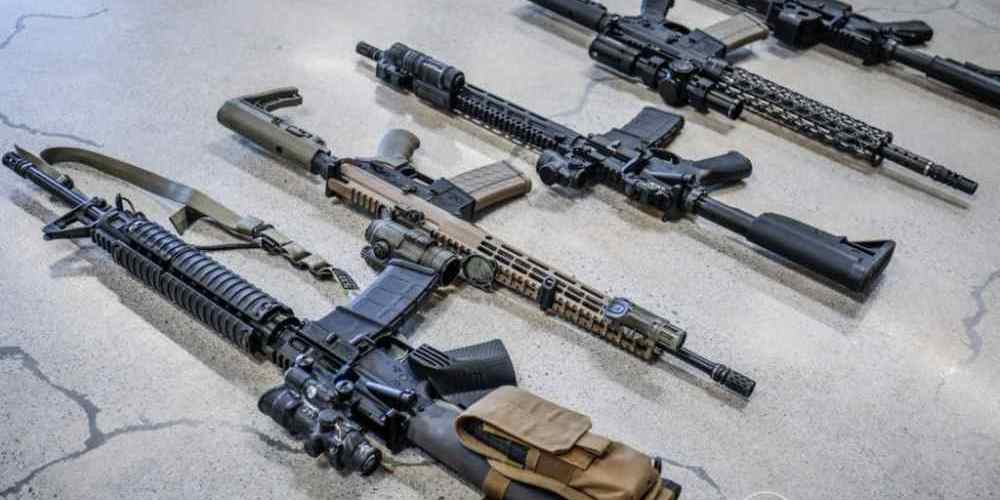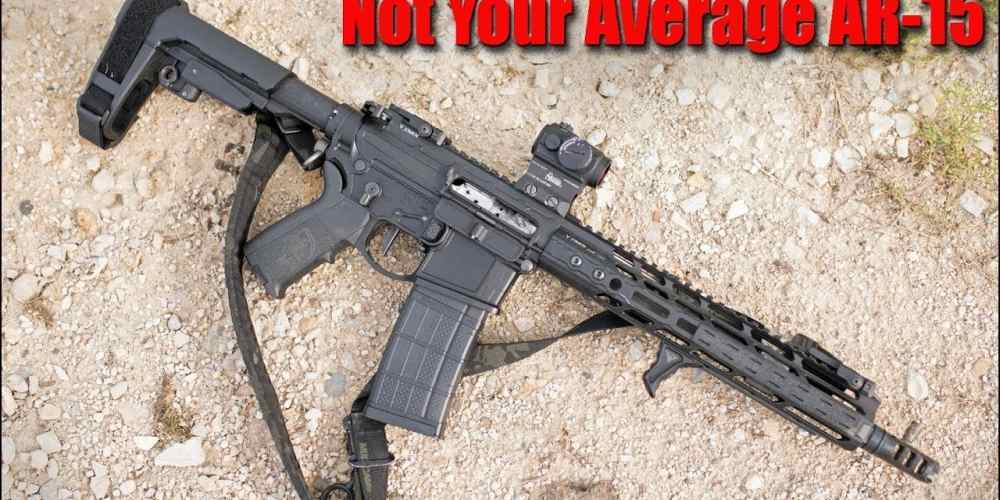“Fine-tune your AR15 performance with the perfect bullet weight.”
Accuracy
When it comes to shooting accuracy with an AR15, the weight of the bullet you choose can have a significant impact on performance. Understanding how different bullet weights affect your rifle’s accuracy is crucial for achieving the best results on the range or in the field.
One of the key factors to consider when selecting a bullet weight for your AR15 is the twist rate of your rifle’s barrel. The twist rate refers to how many inches it takes for the rifling in the barrel to make one complete revolution. Different twist rates are better suited to stabilize different bullet weights, so it’s important to match your bullet weight to your barrel’s twist rate for optimal accuracy.
For example, a barrel with a 1:7 twist rate is typically better suited for heavier bullets, such as 77-grain or 80-grain projectiles. These heavier bullets require a faster twist rate to stabilize properly in flight, which helps improve accuracy at longer ranges. On the other hand, a barrel with a 1:9 twist rate may perform better with lighter bullets, such as 55-grain or 62-grain projectiles.
In general, heavier bullets tend to offer better long-range accuracy due to their higher ballistic coefficients and ability to resist wind drift. However, lighter bullets may be more suitable for shorter-range shooting or rapid-fire situations where speed is more important than precision.
When testing different bullet weights for accuracy, it’s important to consider factors such as bullet drop, wind drift, and velocity. Heavier bullets typically have a flatter trajectory and retain more energy downrange, making them more forgiving of minor errors in range estimation or wind calls. Lighter bullets, on the other hand, may be faster and more maneuverable but can be more affected by external factors such as wind or bullet drop.
To determine which bullet weight is best for your AR15, it’s essential to conduct thorough testing and experimentation. Start by zeroing your rifle with a specific bullet weight and then shoot groups at various distances to evaluate accuracy and consistency. Pay attention to factors such as group size, shot placement, and overall performance to determine which bullet weight works best for your shooting style and intended use.
In conclusion, the weight of the bullet you choose can have a significant impact on the accuracy of your AR15. Matching your bullet weight to your rifle’s twist rate is crucial for achieving optimal performance and consistency on the range. Whether you prefer heavier bullets for long-range precision or lighter bullets for speed and maneuverability, experimenting with different bullet weights is key to finding the perfect balance of accuracy and performance for your shooting needs.
Recoil
When it comes to shooting an AR15, one of the key factors that can greatly impact performance is the weight of the bullets being used. Bullet weight plays a crucial role in determining the recoil of the rifle, which in turn affects accuracy, control, and overall shooting experience. In this article, we will explore how different bullet weights can influence the recoil of an AR15 and what shooters should consider when selecting ammunition for their rifle.

Recoil is the backward movement of a rifle when a bullet is fired. It is caused by the force of the bullet being expelled from the barrel and the reaction force that pushes the rifle in the opposite direction. The weight of the bullet being fired can significantly impact the amount of recoil experienced by the shooter. In general, heavier bullets tend to produce more recoil than lighter bullets due to the increased energy required to propel them.
When shooting an AR15, the recoil can affect the shooter’s ability to maintain control of the rifle and accurately place shots on target. Excessive recoil can cause the rifle to jump off target, resulting in missed shots and reduced accuracy. It can also lead to fatigue and discomfort for the shooter, making it more difficult to maintain proper shooting form and technique.
The recoil of an AR15 can be mitigated by selecting the right bullet weight for the intended purpose. Lighter bullets typically produce less recoil, making them ideal for shooters who are looking for a more comfortable shooting experience. However, lighter bullets may sacrifice some stopping power and penetration compared to heavier bullets. On the other hand, heavier bullets can provide greater terminal performance but at the cost of increased recoil.
Shooters should consider their shooting goals and preferences when selecting bullet weights for their AR15. For target shooting or competition, lighter bullets may be more suitable as they offer reduced recoil and faster follow-up shots. For hunting or self-defense, heavier bullets may be preferred for their increased stopping power and penetration.
It is important to note that the recoil of an AR15 can also be influenced by other factors such as the rifle’s design, barrel length, and muzzle device. Shooters should take these factors into account when choosing ammunition to ensure optimal performance and shooting comfort.
In conclusion, the weight of the bullets being used in an AR15 can have a significant impact on recoil and overall shooting performance. Shooters should carefully consider their shooting goals and preferences when selecting bullet weights to ensure a comfortable and effective shooting experience. By understanding how different bullet weights affect recoil, shooters can make informed decisions when choosing ammunition for their AR15.
Velocity
When it comes to choosing the right ammunition for your AR15, one of the key factors to consider is the bullet weight. The weight of a bullet can have a significant impact on the performance of your rifle, particularly in terms of velocity. Understanding how different bullet weights affect AR15 performance can help you make informed decisions when selecting ammunition for your firearm.
Bullet weight is typically measured in grains, with lighter bullets weighing less and heavier bullets weighing more. In general, lighter bullets tend to travel at higher velocities, while heavier bullets travel at slower velocities. This is due to the fact that lighter bullets require less force to accelerate, allowing them to achieve higher speeds. On the other hand, heavier bullets require more force to accelerate, resulting in lower velocities.
The velocity of a bullet is an important factor to consider when it comes to AR15 performance. Velocity refers to the speed at which a bullet travels through the air, and it can have a significant impact on accuracy, range, and terminal ballistics. Higher velocities generally result in flatter trajectories, which can make it easier to hit targets at longer distances. Additionally, higher velocities can also increase the energy and stopping power of a bullet upon impact.
When it comes to choosing the right bullet weight for your AR15, it’s important to consider the intended use of your firearm. For example, if you are using your AR15 for long-range shooting or hunting, you may want to opt for heavier bullets that can deliver more energy and penetration at longer distances. On the other hand, if you are using your AR15 for target shooting or competition, lighter bullets may be more suitable due to their higher velocities and flatter trajectories.
It’s also worth noting that the twist rate of your AR15’s barrel can have an impact on the performance of different bullet weights. The twist rate refers to the rate at which the rifling in the barrel twists, and it can affect how stable a bullet is in flight. Generally, heavier bullets require a faster twist rate to stabilize properly, while lighter bullets may perform better with a slower twist rate. It’s important to match the twist rate of your barrel to the bullet weight you are using to ensure optimal performance.
In conclusion, the weight of a bullet can have a significant impact on the performance of your AR15, particularly in terms of velocity. Understanding how different bullet weights affect AR15 performance can help you make informed decisions when selecting ammunition for your firearm. Whether you are shooting for long-range accuracy, hunting, or competition, choosing the right bullet weight can help you achieve the best possible performance from your AR15. So next time you’re shopping for ammunition, consider the weight of the bullets you are using and how they will affect the velocity and overall performance of your rifle.
Terminal Ballistics
When it comes to choosing the right ammunition for your AR15, one of the key factors to consider is the bullet weight. The weight of a bullet can have a significant impact on the performance of your rifle, affecting everything from accuracy to terminal ballistics. In this article, we will explore how different bullet weights can affect the performance of your AR15.
Let’s start by discussing the basics of bullet weight. Bullet weight is typically measured in grains, with heavier bullets weighing more grains than lighter ones. The weight of a bullet can affect its trajectory, velocity, and energy transfer upon impact. Heavier bullets tend to have a slower muzzle velocity but retain more energy downrange, while lighter bullets have a higher muzzle velocity but may lose energy more quickly.
When it comes to AR15 rifles, the most common bullet weights are 55 grains, 62 grains, and 77 grains. Each weight has its own advantages and disadvantages, depending on the intended use of the rifle. For example, 55-grain bullets are popular for general plinking and target shooting due to their relatively low cost and recoil. They also tend to have a flatter trajectory, making them easier to shoot accurately at shorter distances.
On the other hand, 77-grain bullets are heavier and more stable in flight, making them ideal for long-range shooting and hunting. These bullets retain more energy downrange and are less affected by wind drift, making them a popular choice for precision shooters. However, they also tend to have a higher recoil and may require a faster twist rate in the barrel to stabilize properly.
The 62-grain bullet weight falls somewhere in between the 55-grain and 77-grain options, offering a good balance of velocity, trajectory, and energy transfer. These bullets are versatile and can be used for a variety of applications, from target shooting to hunting. They are also compatible with a wide range of barrel twist rates, making them a popular choice for many AR15 owners.
When it comes to terminal ballistics, the weight of the bullet can have a significant impact on its performance upon impact with a target. Heavier bullets tend to penetrate deeper and create larger wound cavities, making them more effective for hunting and self-defense. Lighter bullets, on the other hand, may fragment upon impact, causing more tissue damage but potentially less penetration.
In conclusion, the weight of a bullet can have a significant impact on the performance of your AR15 rifle. Whether you are plinking at the range, hunting game, or defending yourself, choosing the right bullet weight is crucial to achieving the desired results. Consider factors such as trajectory, velocity, energy transfer, and terminal ballistics when selecting ammunition for your rifle. Experiment with different bullet weights to find the one that best suits your needs and preferences. Remember, practice makes perfect, so spend time on the range testing different loads to see how they perform in your AR15.
Barrel Wear
When it comes to AR15 performance, one factor that often gets overlooked is the impact of different bullet weights on barrel wear. The weight of a bullet can have a significant effect on how a rifle performs, and understanding this relationship is crucial for maximizing the lifespan of your AR15.
Barrel wear is a natural occurrence that happens over time as a result of the repeated firing of bullets. The heat and pressure generated by each shot can cause the barrel to wear down, leading to decreased accuracy and potentially even dangerous malfunctions. By choosing the right bullet weight for your AR15, you can help minimize the wear and tear on your barrel and ensure that your rifle continues to perform at its best.
One of the key factors that determines how a bullet weight affects barrel wear is the amount of pressure that is generated when the bullet is fired. Heavier bullets typically require more powder to propel them down the barrel, which in turn creates more pressure. This increased pressure can cause more wear on the barrel, leading to a shorter lifespan for your rifle.
On the other hand, lighter bullets require less powder and generate less pressure when fired. This can help reduce the amount of wear on the barrel and prolong its lifespan. However, it’s important to note that using bullets that are too light for your rifle can also cause issues, such as decreased accuracy and reliability.
Another factor to consider when choosing a bullet weight for your AR15 is the twist rate of your barrel. The twist rate refers to how many inches it takes for the rifling in the barrel to make one complete revolution. Different bullet weights perform best with different twist rates, so it’s important to match the weight of your bullets with the twist rate of your barrel for optimal performance.
For example, heavier bullets typically perform better with a faster twist rate, as this helps stabilize the bullet as it travels down the barrel. If you’re using a bullet that is too heavy for your barrel’s twist rate, it can cause the bullet to tumble or keyhole, leading to decreased accuracy and potentially dangerous malfunctions.
Conversely, lighter bullets generally perform better with a slower twist rate, as this allows the bullet to stabilize properly. Using a bullet that is too light for your barrel’s twist rate can cause the bullet to over-stabilize, leading to decreased accuracy and reliability.
In conclusion, choosing the right bullet weight for your AR15 is crucial for maximizing performance and minimizing barrel wear. By understanding how different bullet weights affect pressure, twist rate, and overall performance, you can ensure that your rifle continues to perform at its best for years to come. So next time you’re at the range, take some time to experiment with different bullet weights and see how they affect your AR15’s performance.




